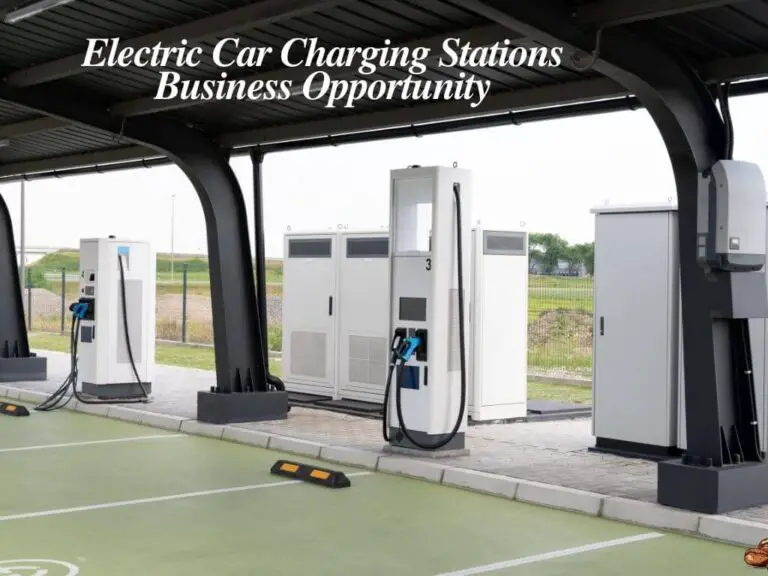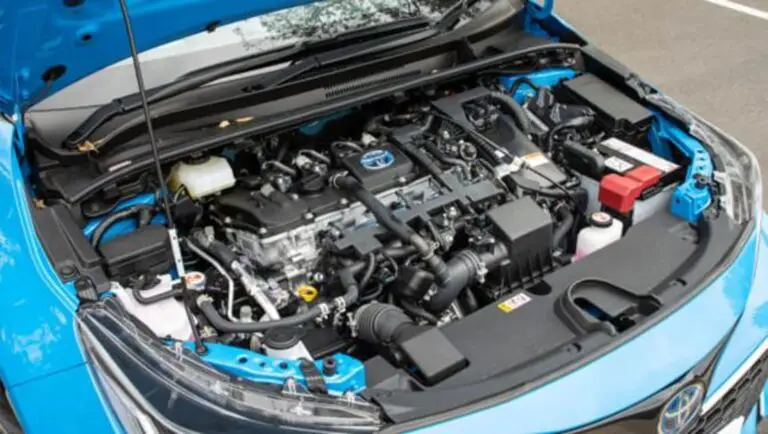Are you considering investing in an electric car charging station but unsure about the costs involved? 🤔 You’re not alone. As the electric vehicle revolution gains momentum, more and more people are wondering about the financial implications of setting up charging infrastructure.
Buckle up as we take you on an electrifying journey through the world of charging station costs! 🚗⚡ From the different types of stations to the factors that influence their prices, we’ll break down everything you need to know. You’ll discover the hidden expenses that catch many off guard and learn how to compare costs across various charging levels. Plus, we’ll explore financing options that could make your charging station dreams a reality and reveal the potential return on investment that might just spark your interest. By the end of this ride, you’ll be equipped with the knowledge to navigate the charging station landscape like a pro, ready to make informed decisions in this rapidly evolving market.
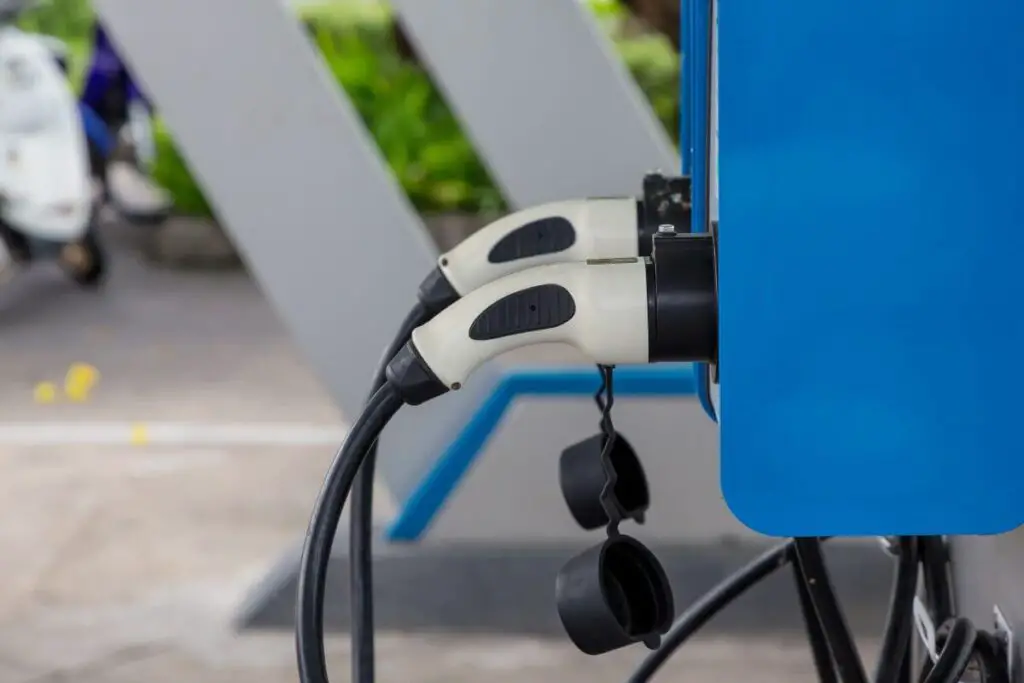
Types of Electric Car Charging Stations
As you delve into the world of electric vehicles (EVs), understanding the different types of charging stations is crucial. Let’s explore the various options available to you, from slow chargers perfect for overnight use to lightning-fast superchargers.
A. Level 1 (Slow) Charging Stations
Level 1 charging is the most basic and accessible option for EV owners. You can use these chargers with a standard 120-volt household outlet, making them incredibly convenient for home use. Here’s what you need to know:
- Charging speed: 2-5 miles of range per hour
- Typical use: Overnight charging at home
- Installation cost: Minimal to none (uses existing outlets)
While Level 1 chargers are the slowest, they’re perfect for topping up your EV overnight or when you have extended parking periods.
B. Level 2 (Medium) Charging Stations
Level 2 chargers offer a significant speed upgrade and are commonly found in public places, workplaces, and homes of dedicated EV owners. These stations use a 240-volt power supply, similar to what your dryer or oven uses. Key features include:
- Charging speed: 10-60 miles of range per hour
- Typical use: Home, workplace, and public charging
- Installation cost: $500-$2,000 for home installation
Level 2 chargers strike a balance between speed and cost, making them a popular choice for many EV owners.
C. Level 3 (Fast) DC Charging Stations
When you need a quick charge on the go, Level 3 DC Fast Charging stations are your best bet. These high-powered stations can significantly reduce charging times, but they’re also the most expensive to install and operate. Here’s what you should know:
- Charging speed: 60-100 miles of range in 20-30 minutes
- Typical use: Long-distance travel, commercial fleets
- Installation cost: $20,000-$100,000+
While these stations are costly, they’re essential for supporting long-distance EV travel and high-usage scenarios.
D. Tesla Superchargers
Tesla has its own proprietary network of fast-charging stations called Superchargers. These stations are designed specifically for Tesla vehicles, offering impressive charging speeds and a seamless user experience. Key points include:
- Charging speed: Up to 200 miles of range in 15 minutes
- Typical use: Long-distance travel for Tesla owners
- Installation cost: Varies (installed and maintained by Tesla)
Here’s a comparison table of the different charging station types:
| Charging Type | Voltage | Charging Speed | Typical Use | Installation Cost |
|---|---|---|---|---|
| Level 1 | 120V | 2-5 mi/hr | Home | Minimal |
| Level 2 | 240V | 10-60 mi/hr | Home/Public | $500-$2,000 |
| Level 3 DC | 480V+ | 3-20 mi/min | Public | $20,000-$100,000+ |
| Supercharger | 480V+ | 15 mi/min | Tesla Only | Varies |
Now that you’re familiar with the various types of electric car charging stations, you can better understand which options might suit your needs. Whether you’re considering installing a home charger or planning long trips, knowing the capabilities and costs of each type will help you make informed decisions about charging your electric vehicle.
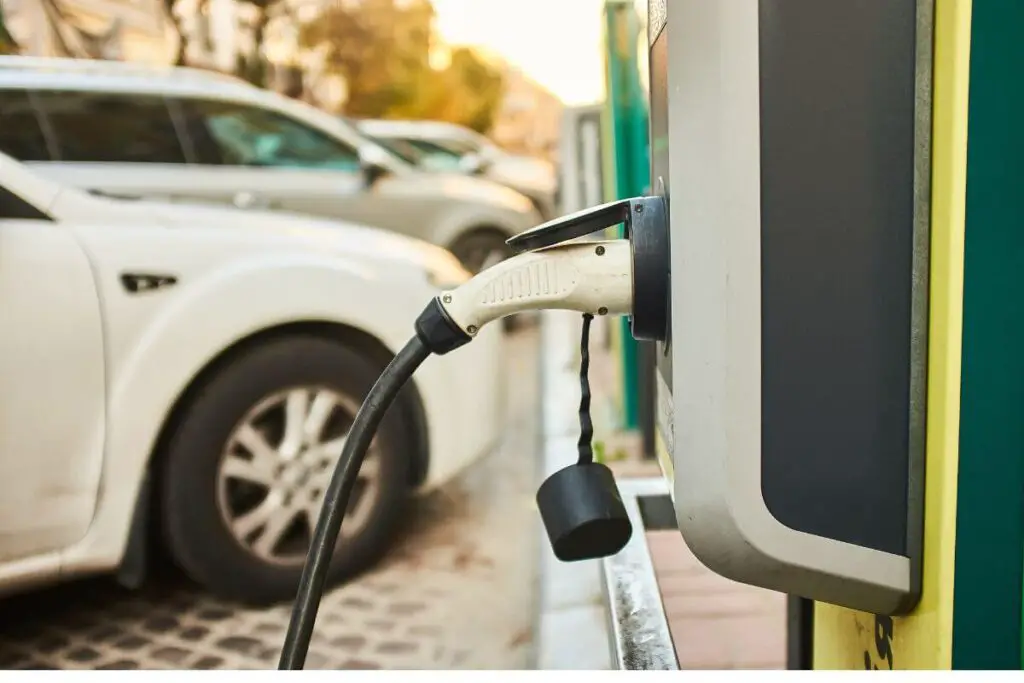
Factors Affecting Charging Station Costs
Now that you’re familiar with the types of electric car charging stations, let’s dive into the factors that influence their costs. Understanding these elements will help you make informed decisions when considering investing in or using charging infrastructure.
A. Equipment Expenses
The cost of charging station equipment varies significantly based on the type and level of charger you choose. Here’s a breakdown of approximate costs:
| Charging Level | Equipment Cost Range |
|---|---|
| Level 1 | $300 – $1,500 |
| Level 2 | $400 – $6,500 |
| Level 3 (DC Fast Charging) | $10,000 – $40,000+ |
Remember, these are just equipment costs. The more advanced the charging technology, the higher the price tag.
B. Installation Fees
Installation costs can sometimes exceed the price of the equipment itself. Factors affecting installation fees include:
- Electrical work required
- Distance from power source
- Trenching and landscaping needs
- Permit and inspection fees
On average, you can expect installation costs to range from $1,000 for a simple Level 2 home charger to $50,000+ for a commercial DC Fast Charging station.
C. Maintenance and Operating Costs
Don’t overlook ongoing expenses when calculating the total cost of ownership. These include:
- Regular maintenance checks
- Software updates
- Electricity costs
- Network fees for connected chargers
Annual maintenance costs typically range from 5-10% of the initial equipment cost.
D. Location and Accessibility
Where you place your charging station can significantly impact costs. Consider these factors:
- Urban vs. rural locations (affecting labor and material costs)
- Proximity to existing electrical infrastructure
- Parking space modifications
- Signage and lighting requirements
Choosing an easily accessible location might increase upfront costs but can lead to higher utilization and better return on investment.
E. Power Supply Requirements
The power supply needed for your charging station is a crucial cost factor. You’ll need to consider:
- Electrical service upgrades (if necessary)
- Transformer installations
- Utility company fees for increased power demand
For high-powered DC Fast Charging stations, you might need to budget an additional $10,000 to $25,000 for power supply upgrades.
As you weigh these factors, remember that while initial costs may seem high, the long-term benefits of providing electric vehicle charging can be substantial. In the next section, we’ll break down these expenses further to give you a clearer picture of the total investment required for different types of charging stations.
Breakdown of Charging Station Expenses
Now that we’ve covered the factors affecting charging station costs, let’s dive into the specific components that make up these expenses. Understanding the breakdown of charging station costs will help you make informed decisions when planning your investment in electric vehicle infrastructure.
A. Hardware Costs
The hardware is the core of any charging station, and it represents a significant portion of the overall expense. Here’s a breakdown of the main hardware components:
- Charging unit
- Cables and connectors
- Mounting equipment
- Electrical panels and circuit breakers
The cost of hardware varies depending on the charging level and brand. Here’s a comparison of average hardware costs for different charging levels:
| Charging Level | Average Hardware Cost |
|---|---|
| Level 1 | $300 – $1,500 |
| Level 2 | $2,000 – $6,000 |
| Level 3 (DC Fast Charging) | $20,000 – $50,000+ |
B. Software and Network Fees
Modern charging stations often come with smart features that require software and network connectivity. These costs include:
- Management software licenses
- Payment processing systems
- Network connectivity fees
- Over-the-air updates
Many providers offer subscription-based models for software and network services, which can range from $100 to $1,000 per year per station, depending on the features and support level.
C. Labor and Installation Charges
Installation is a crucial aspect of setting up a charging station, and the costs can vary widely based on several factors:
- Site preparation
- Electrical work
- Physical installation of the charging unit
- Testing and commissioning
Labor costs typically range from $1,000 to $3,000 for a simple Level 2 installation, but can exceed $10,000 for more complex setups or DC fast charging stations.
D. Permitting and Inspection Costs
Before you can operate your charging station, you’ll need to obtain the necessary permits and pass inspections. These costs include:
- Local government permit fees
- Electrical inspections
- Environmental impact assessments (for larger installations)
- Compliance with accessibility requirements
Permitting and inspection costs can range from a few hundred dollars to several thousand, depending on your location and the scale of the installation.
To give you a clearer picture, here’s a sample breakdown of expenses for a typical Level 2 charging station:
- Hardware: $4,000
- Software and Network (1st year): $500
- Labor and Installation: $2,500
- Permitting and Inspection: $800
Total: $7,800
Keep in mind that these figures are averages, and your actual costs may vary based on your specific requirements and location. As you plan your charging station investment, consider each of these components carefully to ensure you’re budgeting accurately for your electric vehicle charging infrastructure.
Next, we’ll explore how these costs compare across different charging levels, helping you determine the best option for your needs and budget.
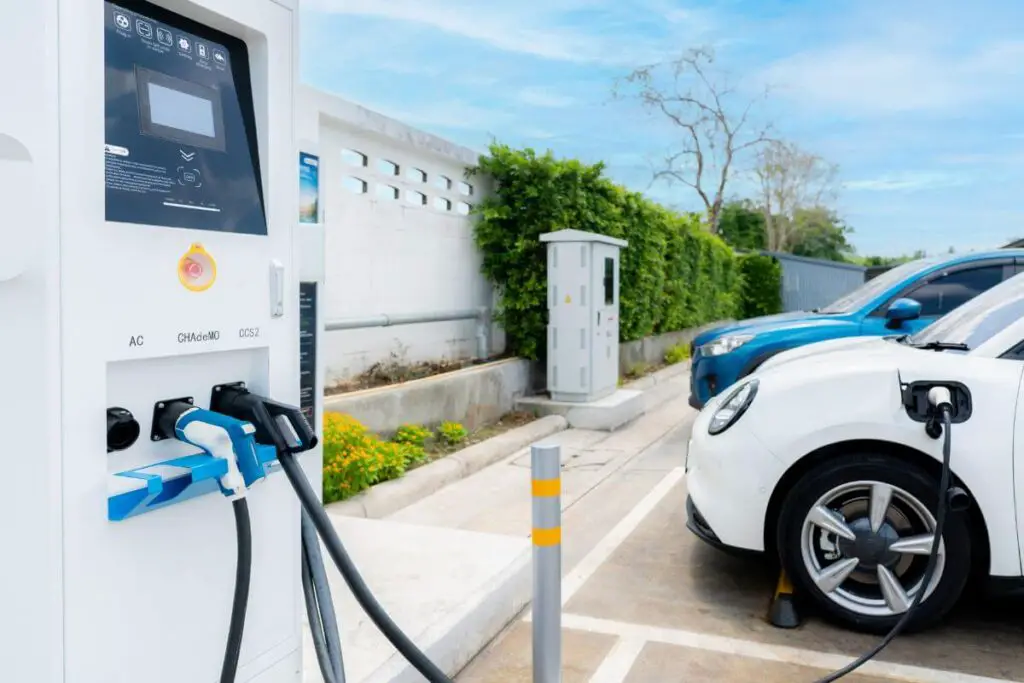
Cost Comparison of Different Charging Levels
Now that you understand the factors affecting charging station costs, let’s dive into a detailed comparison of different charging levels. This will help you make an informed decision when considering electric vehicle (EV) charging options.
Level 1 vs. Level 2 Costs
When comparing Level 1 and Level 2 charging, you’ll notice significant differences in both cost and charging speed:
| Aspect | Level 1 | Level 2 |
|---|---|---|
| Equipment Cost | $300 – $600 | $500 – $2,000 |
| Installation Cost | $0 – $300 | $500 – $2,000 |
| Charging Speed | 3-5 miles/hour | 10-60 miles/hour |
| Power Output | 1.4 kW | 3.3 – 19.2 kW |
Level 1 chargers are more affordable but significantly slower. You might consider Level 1 if:
- You have a long charging window (e.g., overnight)
- You drive short distances daily
- You’re on a tight budget
Level 2 chargers offer faster charging speeds but come at a higher cost. They’re ideal if:
- You need quicker charging times
- You drive longer distances regularly
- You’re willing to invest in convenience
Level 2 vs. Level 3 Cost Differences
The jump from Level 2 to Level 3 (DC Fast Charging) is substantial in terms of both cost and charging speed:
| Aspect | Level 2 | Level 3 (DC Fast Charging) |
|---|---|---|
| Equipment Cost | $500 – $2,000 | $20,000 – $50,000+ |
| Installation Cost | $500 – $2,000 | $8,500 – $50,000+ |
| Charging Speed | 10-60 miles/hour | 3-20 miles/minute |
| Power Output | 3.3 – 19.2 kW | 50 – 350 kW |
Level 3 chargers are significantly more expensive but offer incredibly fast charging speeds. Consider Level 3 if:
- You’re a business owner looking to attract EV customers
- You manage a fleet of electric vehicles
- You’re located near a high-traffic area or highway
Tesla Supercharger Cost Considerations
Tesla’s Supercharger network is a proprietary Level 3 charging system. While Tesla doesn’t publicly disclose exact costs, estimates suggest:
- Equipment Cost: $100,000 – $175,000 per station
- Installation Cost: $50,000 – $100,000+ per station
Tesla Superchargers offer:
- Charging speeds up to 1,000 miles per hour
- Compatibility with Tesla vehicles (some models require an adapter)
- A vast, established network across many countries
When considering Tesla Superchargers, remember:
- They’re primarily designed for Tesla vehicles
- Non-Tesla EVs may require special adapters or agreements
- The high cost makes them more suitable for commercial or large-scale installations
As you weigh your options, consider your specific needs, budget, and long-term plans. While higher-level chargers offer faster charging, they come with significantly higher costs. Your choice should balance speed, convenience, and financial considerations.
Financing Options for Charging Stations
Now that we’ve explored the costs associated with electric car charging stations, let’s examine the various financing options available to help offset these expenses. Whether you’re a business owner, property manager, or individual looking to install a charging station, there are several avenues to explore.
A. Government Incentives and Rebates
Government support plays a crucial role in promoting the adoption of electric vehicle (EV) infrastructure. You can take advantage of various incentives and rebates offered at federal, state, and local levels to reduce your initial investment.
- Federal tax credits: You may qualify for tax credits of up to 30% of the installation cost, with a maximum of $30,000 for commercial installations.
- State-level incentives: Many states offer additional rebates or grants to encourage charging station installations.
- Local programs: Some cities and municipalities provide their own incentives, such as expedited permitting or direct financial assistance.
To maximize your benefits, research and combine multiple incentives where possible.
B. Utility Company Programs
Your local utility company can be a valuable partner in your charging station project. Many utilities offer programs designed to support EV infrastructure:
- Rebate programs: Some utilities provide cash rebates for installing charging stations.
- Rate discounts: You might be eligible for special EV charging rates, reducing your ongoing electricity costs.
- Infrastructure support: Some utilities will cover part or all of the costs for necessary electrical upgrades.
Reach out to your utility provider to learn about available programs in your area.
C. Private Investment Opportunities
If you’re looking to install charging stations on a larger scale, private investment can be an attractive option:
- Angel investors: Individual investors interested in green technology may provide funding.
- Venture capital: Firms specializing in clean energy might be interested in backing your project.
- Corporate partnerships: Companies looking to enhance their green credentials may be willing to sponsor charging stations.
Here’s a comparison of these private investment options:
| Investment Type | Pros | Cons |
|---|---|---|
| Angel Investors | Flexible terms, mentorship | Smaller funding amounts |
| Venture Capital | Large funding potential, industry connections | Loss of some control, high-pressure growth expectations |
| Corporate Partnerships | Brand recognition, potential for ongoing support | May have specific requirements or limitations |
D. Leasing and Subscription Models
If you’re hesitant about the upfront costs, leasing or subscription models offer an alternative approach:
- Equipment leasing: You can lease the charging equipment, spreading the cost over time.
- Network subscriptions: Some providers offer all-inclusive subscriptions covering equipment, installation, and maintenance.
- Revenue-sharing models: Partner with a charging network that installs and maintains the equipment in exchange for a share of the revenue.
These options can help you get started with lower initial costs, though they may result in higher long-term expenses compared to outright ownership.
By exploring these financing options, you can find the best approach to make electric car charging stations more affordable for your specific situation. As the EV market continues to grow, these financing opportunities are likely to expand, making it easier for you to participate in the electric vehicle revolution.
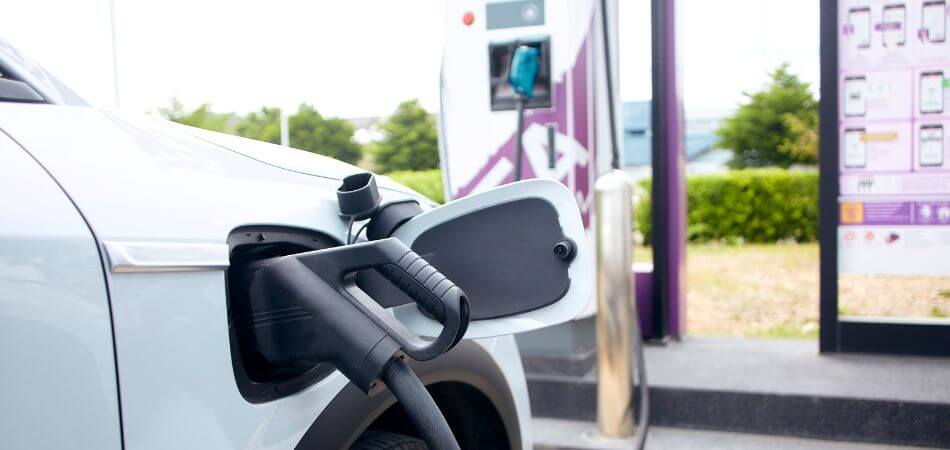
Return on Investment for Charging Station Owners
Now that you’ve explored the various costs associated with electric car charging stations, it’s crucial to understand the potential return on investment (ROI) for station owners. This section will delve into the financial aspects of owning and operating a charging station, helping you make informed decisions about this growing business opportunity.
Revenue Generation Potential
As an electric car charging station owner, you have several avenues to generate revenue. Your primary income source will be the fees charged for charging services. However, there are additional ways to boost your earnings:
- Charging fees
- Advertising revenue
- Loyalty programs
- Retail partnerships
- Subscription models
Here’s a breakdown of potential monthly revenue based on different station types:
| Station Type | Average Daily Users | Average Fee per Charge | Monthly Revenue |
|---|---|---|---|
| Level 2 | 10 | $10 | $3,000 |
| DC Fast | 20 | $20 | $12,000 |
| Ultra-Fast | 30 | $30 | $27,000 |
Break-even Analysis
To determine how long it will take for your charging station to become profitable, you need to conduct a break-even analysis. This involves comparing your initial investment and ongoing operational costs against your projected revenue.
Key factors to consider in your break-even analysis:
- Initial equipment and installation costs
- Ongoing maintenance and electricity expenses
- Projected usage rates
- Charging fees and additional revenue streams
For example, if you invest $50,000 in a Level 2 charging station and generate $3,000 in monthly revenue with $1,000 in monthly expenses, your break-even point would be approximately 25 months.
Long-term Financial Benefits
While the initial investment in electric car charging stations can be substantial, the long-term financial benefits can be significant. As an owner, you can expect:
- Increasing demand: With the growing adoption of electric vehicles, your customer base is likely to expand over time.
- Appreciation of property value: Installing charging stations can increase the value of your property, especially for commercial real estate.
- Government incentives: Many regions offer tax credits or grants for charging station installations, reducing your overall costs.
- Brand recognition: As an early adopter, you can establish your brand in the market, potentially leading to franchise opportunities.
To maximize your long-term financial benefits, consider:
- Regularly upgrading your equipment to stay competitive
- Expanding your network of stations to capture a larger market share
- Developing partnerships with local businesses to create mutually beneficial arrangements
- Implementing smart pricing strategies to optimize revenue during peak hours
By carefully analyzing the revenue potential, conducting a thorough break-even analysis, and considering the long-term financial benefits, you can make a well-informed decision about investing in electric car charging stations. As the electric vehicle market continues to grow, early adopters who strategically position themselves in this industry stand to reap significant rewards in the years to come.

Future Trends in Charging Station Costs
As the electric vehicle (EV) market continues to grow, you can expect significant changes in the landscape of charging station costs. Let’s explore the key factors that will shape the future of EV charging infrastructure.
Technological Advancements
You’ll be pleased to know that technological innovations are set to drive down the costs of electric car charging stations. Advancements in charging technology are focusing on:
- Faster charging speeds
- More efficient power conversion
- Improved durability of components
- Smart charging capabilities
These improvements will not only reduce the initial installation costs but also lower ongoing maintenance expenses. For instance, you’ll see charging stations that can handle higher power outputs, allowing for quicker charging times without the need for expensive upgrades to electrical infrastructure.
Economies of Scale
As the demand for electric vehicles grows, you’ll witness a significant increase in charging station production. This scaling up of manufacturing will lead to:
- Reduced production costs
- More competitive pricing
- Wider availability of components
Here’s a breakdown of how economies of scale are expected to impact charging station costs:
| Year | Projected Cost Reduction |
|---|---|
| 2023 | Baseline |
| 2025 | -15% |
| 2027 | -25% |
| 2030 | -40% |
These projections show that you can expect substantial cost savings in the coming years as the industry expands.
Standardization Efforts
You’ll be happy to know that industry-wide standardization efforts are underway to streamline charging station technology. These initiatives aim to:
- Reduce manufacturing complexity
- Improve interoperability between different EV models and charging stations
- Simplify installation and maintenance procedures
- Enhance user experience and accessibility
As these standards become more widely adopted, you’ll see a reduction in the overall costs associated with electric car charging stations. Manufacturers will be able to produce more universal components, leading to lower prices and easier maintenance.
Integration with Renewable Energy Sources
The future of charging stations is closely tied to renewable energy integration. You’ll see more charging stations powered by:
- Solar panels
- Wind turbines
- Energy storage systems
This integration will not only reduce operational costs but also make charging stations more sustainable and grid-independent. Initial installation costs might be higher, but you’ll benefit from significantly lower long-term energy expenses.
As these trends converge, you can expect the cost of electric car charging stations to decrease substantially over the next decade. The combination of technological advancements, economies of scale, standardization efforts, and renewable energy integration will make EV charging more accessible and affordable. This evolution will play a crucial role in accelerating the adoption of electric vehicles and supporting a cleaner, more sustainable transportation future.
Conclusion
As you navigate the world of electric vehicle charging stations, understanding the costs involved is crucial. From the various types of charging stations to the factors affecting their expenses, you now have a comprehensive overview of what to expect. Remember that while initial costs may seem high, the long-term benefits and potential return on investment make charging stations an attractive option for businesses and property owners.
Consider exploring financing options to make the installation process more manageable. As technology advances and demand increases, you can expect to see changes in charging station costs and capabilities. By staying informed and planning ahead, you’ll be well-positioned to take advantage of this growing market and contribute to a more sustainable future in transportation.
FAQ’s
How much will it cost to charge an electric car?
The cost to charge an electric car varies depending on factors like electricity rates, battery size, and charging station type. On average, charging at home can cost between $5 and $15 for a full charge, while public charging stations may charge between $0.10 and $0.40 per kWh. Overall, it generally ranges from $0.03 to $0.10 per mile, making it significantly cheaper than gasoline.
How much does EV charging cost per charge?
The cost of charging an electric vehicle (EV) can vary widely based on several factors, including the electricity rate in your area, the capacity of your vehicle’s battery, and whether you charge at home or use public charging stations. On average, charging an EV at home costs between $5 to $15 for a full charge, depending on your local electricity rates and the battery size. Public charging stations may have different pricing models, with costs ranging from free to around $0.20 to $0.80 per kWh, leading to varying overall charging expenses.
Can I charge my electric car for free?
Yes, you can charge your electric car for free at various locations, such as public charging stations, shopping centers, and some workplaces that offer complimentary charging as a perk. Additionally, some utility companies provide free charging during off-peak hours. However, availability may vary, so it’s always a good idea to check local resources or apps that track charging stations to find free options nearby.
How much does it cost to charge an electric car at a public charging station in Canada?
The cost of charging an electric car at a public charging station in Canada can vary depending on several factors, including:
Charging network: Different charging networks have different pricing structures.
Charger type: Faster DC chargers typically cost more than slower AC chargers.
Location: Charging costs may vary depending on the province and region.
Time of day: Some charging stations offer off-peak rates that are cheaper than peak rates.
On average, you can expect to pay between $15 and $30 per hour for a fast-charge session at a public charging station in Canada.

